For decades, Croatia has been a favorite destination for expats and digital nomads, and our essential guide is everything you need to know about living in Croatia.
In this guide:
- Croatia's highlights.
- The legalities of moving to Croatia: visas and residency options.
- The cost of living: monthly expenses, rentals, and real estate.
- Croatia as a retirement destination.
- Infrastructure: travel connections, public transport, internet.
- Buying real estate.
- Healthcare and education.
- Taxes and bank accounts.
- Where to live in Croatia – an overview of the most popular expat locations.
- The pros and cons.
Secure Peace of Mind with Best-Value International Health Coverage
International Citizens Insurance provide free, no-obligation quotes from the leading international health insurance providers with plans tailored to meet your needs. Trusted by thousands of expats worldwide.
Croatia's highlights
At the crossroads of central and southeastern Europe, Croatia is one of the European Union’s newest and youngest states.
Especially great for expat families or simply those with a budget, Croatia is one choice that provides a diversity of options.
Somewhat of a Cinderella story, today, Croatia is the crown of the Balkan peninsula, offering a bit of everything there is to love about Europe.
Living in Croatia has the feel of living in Italy, with a landscape reminiscent of Greece along with the affordability typical of the Balkans.
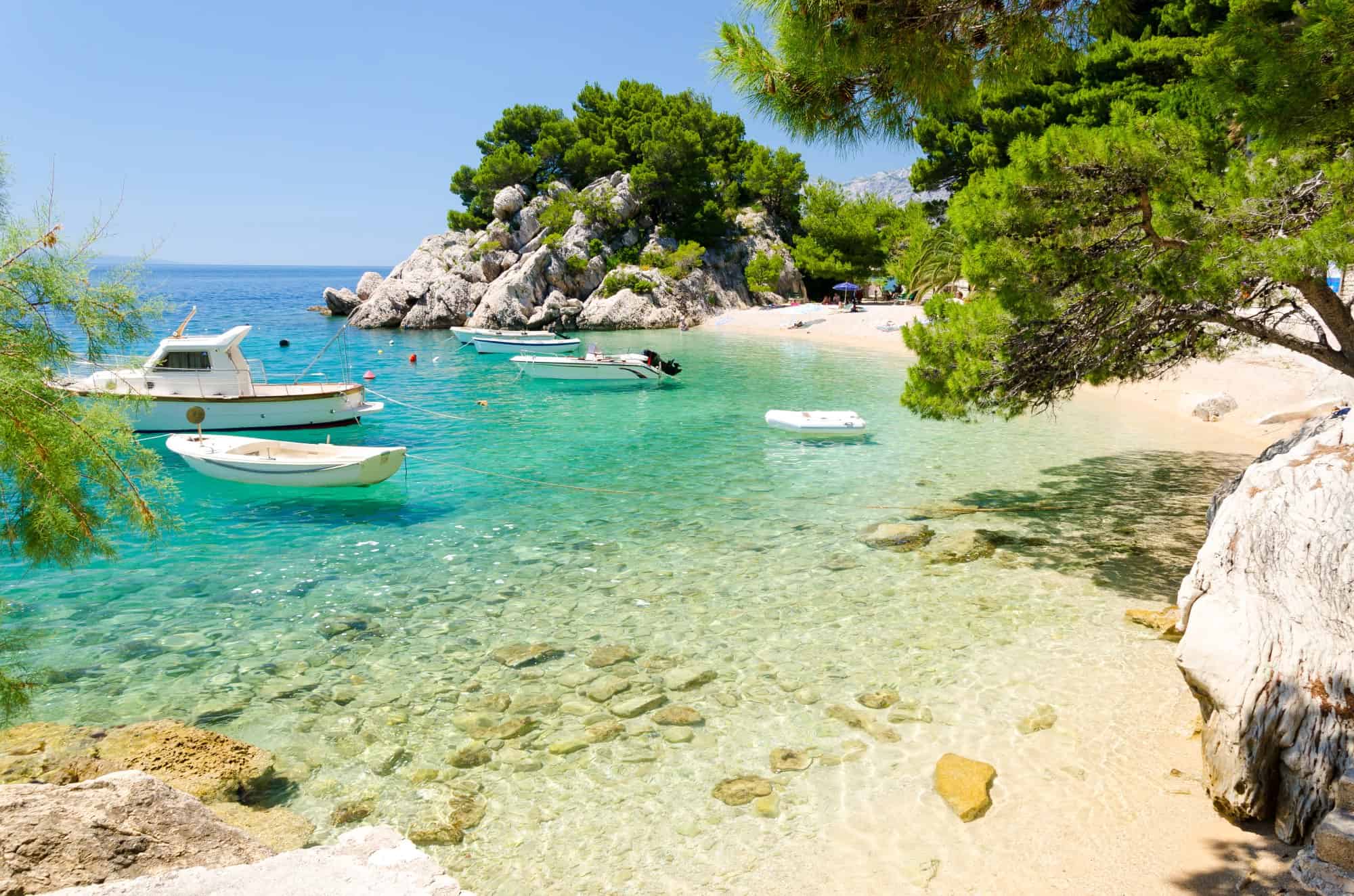
With several international airports, ferry ports, and train and bus stations, Croatia is well-connected to the world.
Its 3600 miles/5800 KM of Adriatic coastline and over 1000 islands and islets provide dozens of amazing Blue Flag beaches, water sports, and superyacht marinas that will exceed the approval of any aquaphile.
Its seemingly untouched nature reserves and incredible biodiversity offer a landscape of purity that outdoor lovers could spend a lifetime exploring.
Its four well-matured wine regions produce superior wines, such as the polished tannins of Dalmatia and the mineral wines of Istria, all of which complement Croatia’s unique gastronomic traditions perfectly.
The cosmopolitan urban centers are a juxtaposition of Croatia’s old culture and modern innovation, providing the opportunity to live in virtually any era of history while never leaving the 21st century.
Visas and residency options
To enter the country, depending on your country of citizenship, you might need to get a short-stay visa. US, Canadian, British, and many other nationals can enter and stay in Croatia for up to 90 days in 6 months without a visa.
If you want to stay longer, you need to apply first for a temporary residence (up to one year) and then either for a long-term residence (for an indefinite period) or a permanent residence (for an indefinite period), depending on your circumstances.
If an entry visa is required for you, you must apply for temporary residence at the appropriate diplomatic mission or consular office before entering the country.
If you are exempt from requiring a visa to enter Croatia, you can apply for a temporary residence permit at the relevant police administration or police station in Croatia.
Temporary residence
There is a long list of the purposes for which temporary residence is designed, including work, study, and family reunification. However, the most relevant item in the list for our audience is "for other purposes".
You can use this to apply for temporary residence in Croatia, your "other purpose" being retirement, property ownership, or remote work.
Tip: It's up to a police department where you apply to give you a temporary residence under "other purposes". To increase your chances, it is worth making sure you have all the documents correct and ready. Using legal help is also a good idea.
To qualify for temporary residence in Croatia, applicants must have:
- Completed application form
- Valid passport
- Criminal background check and certificate of length of stay
- Certificate of ownership/title deed for real estate in Croatia (if applying as a property owner)
- Means of financial support.
- Health insurance.
Temporary residence is issued for a year. After that, you have to apply again.
Long-term residence
Long-term residence can be granted to foreign individuals who have legally and continuously lived in Croatia for five consecutive years with a temporary residence visa.
Living continuously means that within a five-year period, your multiple absences from Croatia do not exceed a total of 10 months or if a single absence within the same period does not surpass six months.
In addition to the requirements listed in the temporary residence section, you will be required to demonstrate knowledge of the Croatian language and Latin script.
Permanent residence
Permanent residence is a type of long-stay residence permit granted to certain non-EU nationals who have resided in Croatia for less than five years. Usually, they are family members, asylum seekers, or ex-residents in Croatia on October 8th, 1991.
Digital Nomad Visa
Croatia has invested significantly to lure global digital nomads to the country.
In January 2021, Croatia introduced a Digital Nomad Residency Visa, but it is not for everyone.
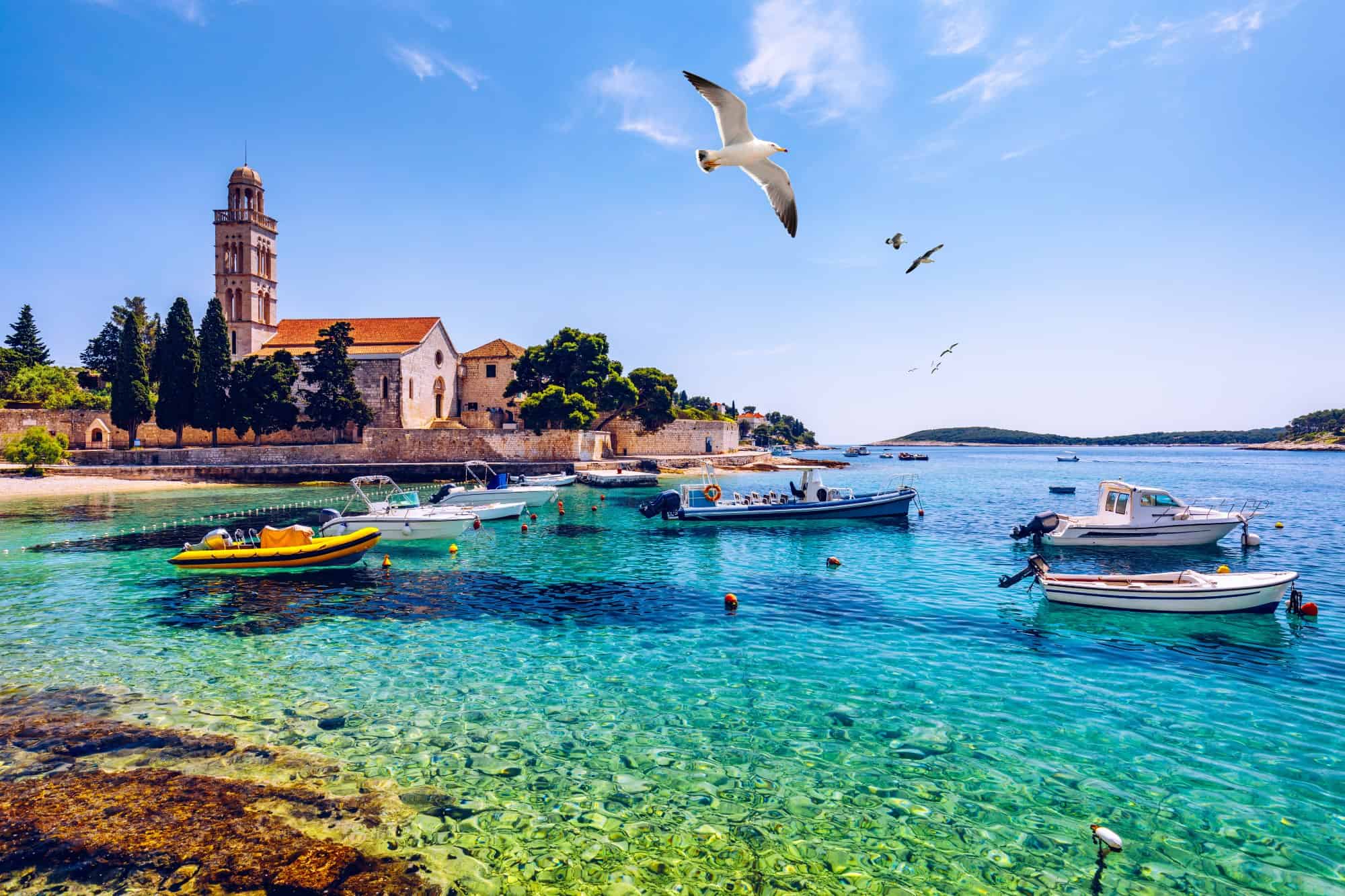
The law states that the digital nomad must be a non-EU citizen who is:
- employed remotely, or
- owns and remotely operates a registered business
The digital nomad cannot be an employee of or earn money from a company in Croatia.
The visa can be issued for a stay of up to 1-year, but its actual duration is discretionary.
Also, the visa is not renewable, and digital nomads are required to wait for six months before re-applying.
Along with the application fee (currently $100/90€), the applicant must provide:
- Proof of monthly income of at least $2500/2250€ for the applicant with an increase of 10% for each family member,
- The applicant’s clean criminal record,
- International health insurance, and
- Proof of an address in Croatia.
Croatia’s Digital Nomad Visa does offer some features that other digital nomad visas don’t.
Croatia added a provision to provide for children’s education to attract families.
Also, only one adult in a family needs to apply, and if approved, all close family members can join the visa holder in Croatia.
The cost of living
Croatia is one of the most affordable European destinations, yet it is also fully capable of satisfying luxury tastes and lifestyles.
Here's how the cost of living in Croatia compares to some Northern European and North American countries:
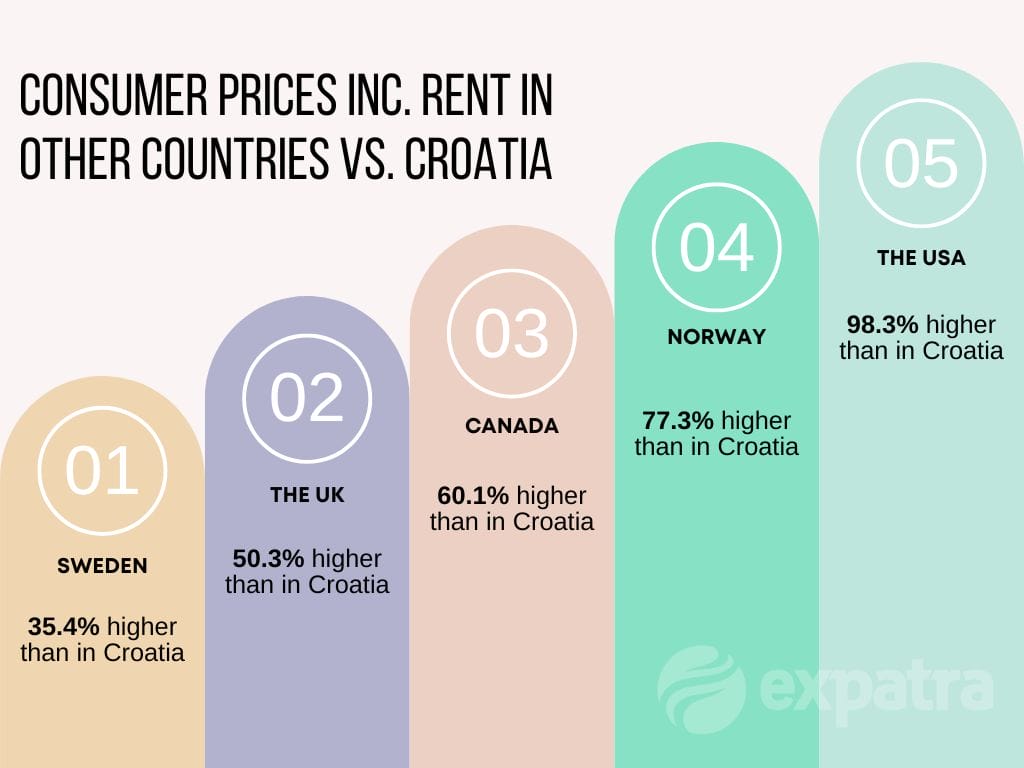
On average, a typical one-bedroom apartment in the city has a monthly rent of around $575/500€. However, this will often be an old building without an elevator.
New modern city apartments average $900/825€ a month for more chic accommodations.
Insider Tip: Annual leases can be difficult as many owners try to capitalize on the lucrative tourist season. Some owners raise the rent once the season begins. Ensure long-term agreements explicitly state the agreed monthly rent.
Depending upon usage, utilities average $100/90€ a month.
Groceries are reasonably affordable, and most larger stores have a basic variety of international products, but there are several international food stores as well.
A single person would average $100/90€ and a family around $275/250€ for a week’s worth of groceries.
Insider Tip: Most places close by 9 pm, earlier on Saturdays, and don’t open on Sundays. Also, most markets tend to rely on self-checkout and normally operate with one staffed cash register, which backs up quickly.
Public transport
Public transport is very good, and tickets provide unlimited rides within a specific time frame, ranging from 30 minutes for $.60/.50€ up to monthly passes for $58/53€.
Other basic expenses average:
- Coffee and pastry – $3.65/3.35€
- Liter of petro/gas - currently capped by law at $1.70/1.50€
- Gym membership - $30/25€ a month
Thus, a single person could live well on a monthly income of $1200/1350€ and a family around $3000/2700€.
Croatia as a retirement destination
Due to the low cost of living, high quality of life, excellent medical services, and being an EU member, Croatia is a good retirement option.
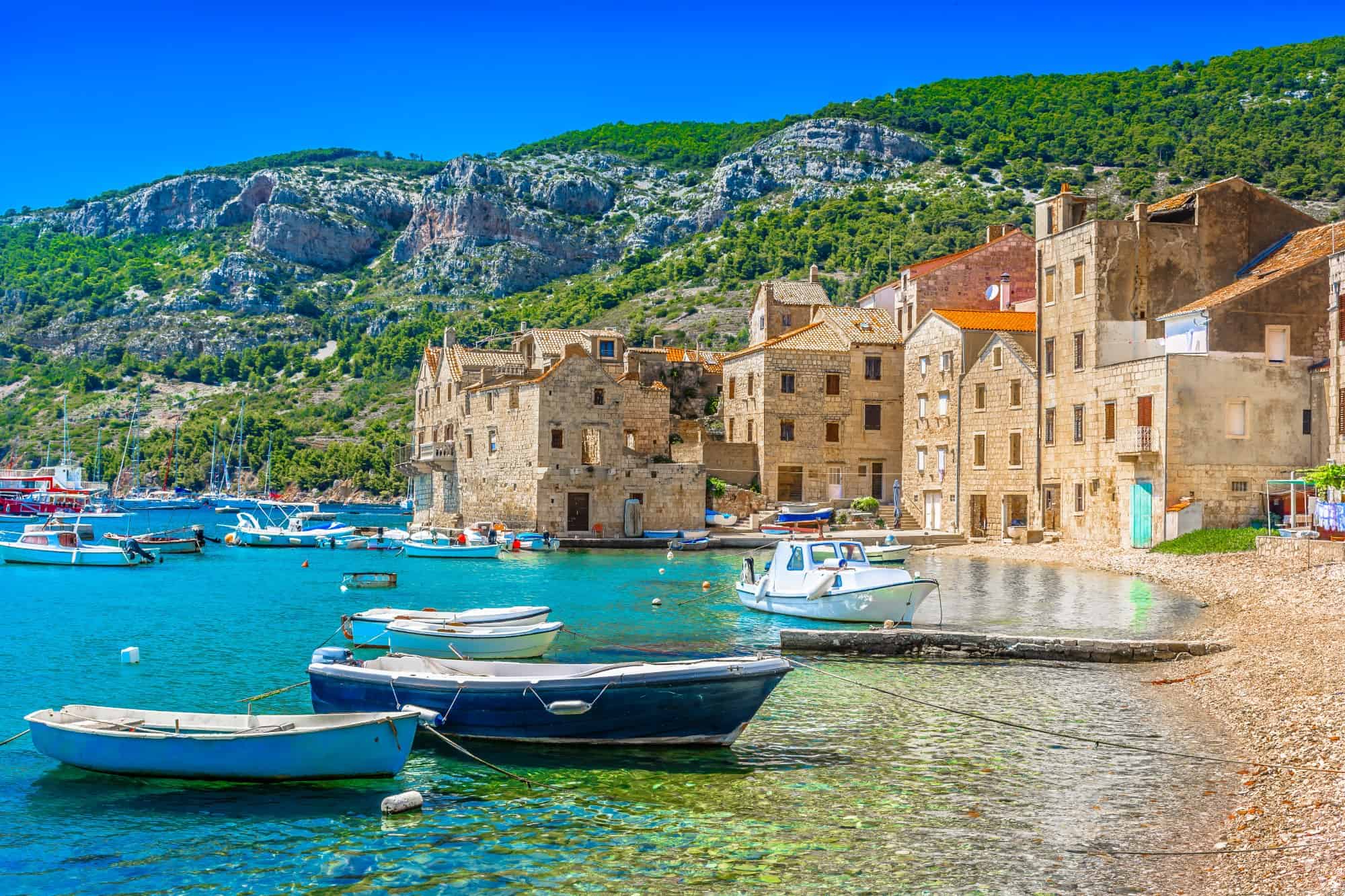
However, the country does not offer a retirement visa or many long-term options for non-EU citizens, and the available options are seemingly discretionary at best.
Additionally, as of January 2021, Croatia made the available visas even more restrictive by now requiring a criminal background check.
Retirement visa options
Most options are temporary and involve a short-term cycle of leaving Croatia, waiting out a return window, and then re-entering.
Also, some of these options require proof of passive income or savings (currently $6500/6000€ for one person and $10,000/9000€ a year for a couple), or even prepaying a year’s rent in full.
The two most common retirement routes for non-EU citizens are:
- Get a temporary residency visa, then a long-term residence
- Croatia’s residency and citizenship-by-investment programs.
Croatia’s citizenship-by-investment program is premised upon a minimum investment (currently $110,000/100,000€) either by buying property or registering/investing in a business and then living uninterrupted in Croatia for eight years.
As with the tax system, these visas and the citizenship-by-investment programs can be complex and require hiring a professional to navigate through.
Internet and mobile connectivity
Internet coverage throughout Croatia is excellent and very reliable.
Internet with basic cable packages averages $35/32€ a month and includes international news and channels, with many English language channels, such as History, FOX, Nat Geo, and Viasat.
Monthly unlimited mobile data averages $28/25€ a month.
Safety
In 2019, Eurostat ranked Croatia as the safest European country.
The US State Department routinely ranks Croatia as Level 1.
Obviously, there is crime, but the overwhelming majority is petty, and violent crime is virtually unheard of.
Both locals and tourists, females included, repeatedly state they neither experience nor have issues or concerns walking alone, even at night.
Some leading LGBTQ+ sites call Croatia as gay-friendly as the US.
However, public displays of affection by the LGBTQ community are not recommended.
Shopping and socializing in Croatia
Croatia has numerous shopping options throughout the country, ranging from small boutique stores to large modern malls for budget and high-end brands.
A Saturday night out for dinner and drinks will average around $20-50/18-45€.
Unless of course, you simply enjoy KFC, Burger King, Dominoes, or McDonald’s.
Croatia also has 10 Michelin-starred restaurants in Zagreb and the Adriatic coastline.
Banks and crypto in Croatia
In 2020, Croatia joined the EU’s Exchange Rate Mechanism, hoping to adopt the Euro as soon as 2023.
Croatia’s banks are predominantly foreign-owned international banks and are considered one of the country’s strongest and most stable industries.
Bank-owned ATMs offer a significantly lower fee than other ATMs.
Insider Tip: ATMs offer to conduct transactions in USD, Euros, or Pounds, and the surcharge is astronomically high. The same is true for credit card transactions at restaurants, hotels, etc. Always conduct transactions in Croatian Kuna.
Currently, cryptocurrencies are virtually unregulated. There are three major crypto exchanges (considered reliable) throughout the country, including The Bitcoin Store.
Croatian post offices also operate as crypto exchanges, and Konzum, Croatia’s largest grocery store, accepts 11 different cryptocurrencies as payment online.
Taxes in Croatia
Foreign pensions are taxable income, but Croatia has tax treaties with numerous countries, including the US and UK, to buffer against some double taxation.
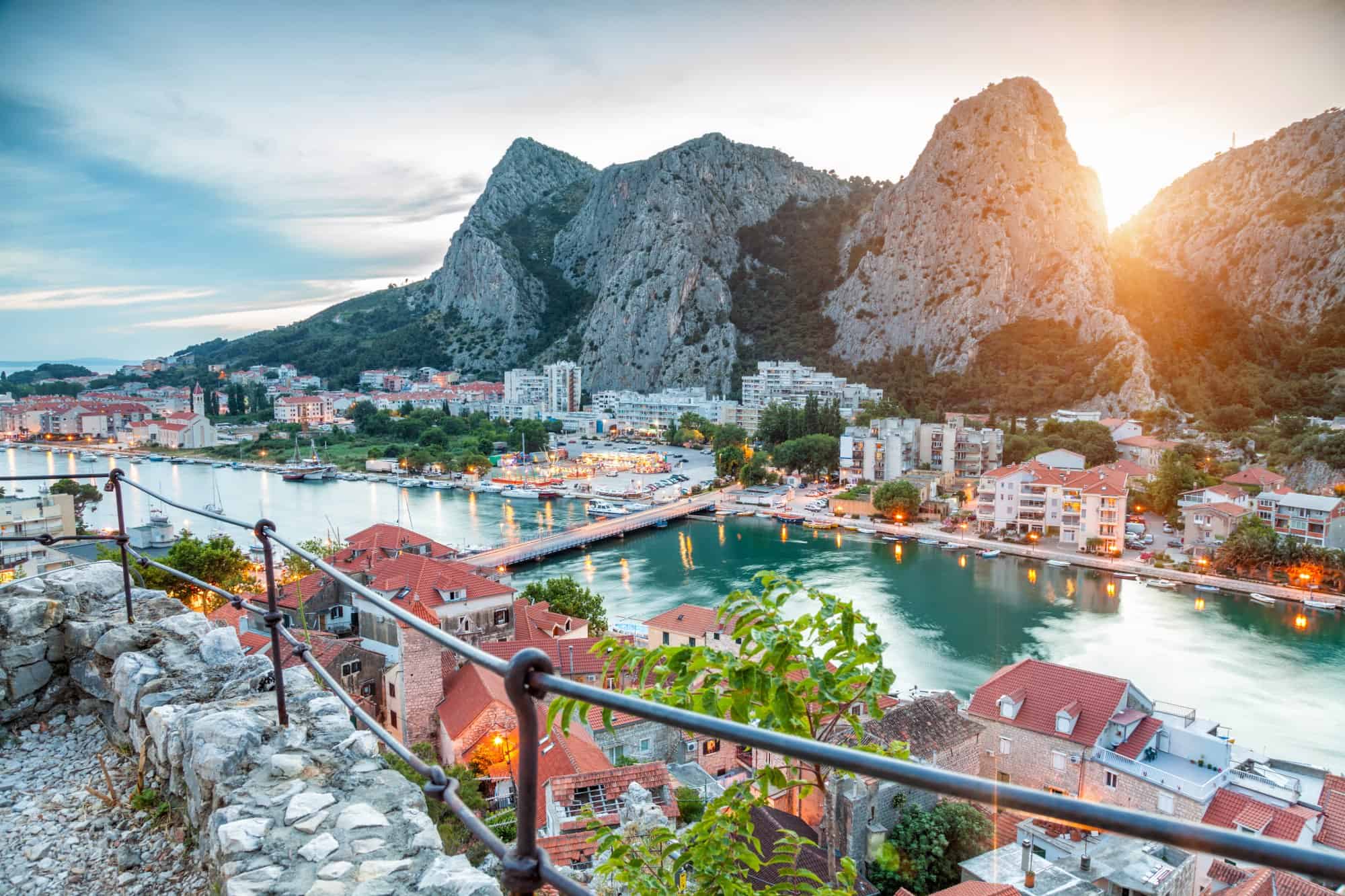
The tax regulations aren't very straightforward.
Basically, you become subject to income taxes after 183 days in the country. However, the type of visa, location, passive income, pensions, etc., all factor into any tax liability.
For example, work income is tax-exempt with Croatia’s Digital Nomad Visa, but passive income is required to be reported.
Also, most residents have a tax rate of 12%, while Zagreb residents are taxed at 18%.
Simply stated, Croatia’s taxes are complicated and require professional assistance.
Healthcare in Croatia
Croatia has an effective nationalized healthcare system that is available, including COVID jabs, to anyone in the country.
In fact, healthcare in Croatia is ranked amongst the best in Europe and the world.
Among the 191 member countries of the World Health Organization, Croatia ranked 43, with the US at 37 and the UK at 18.
Health insurance
Health insurance and healthcare are overseen by HZZO (Hrvatski zavod za zdravstveno osiguranje or the Croatian Institute for Health Insurance). Health insurance is mandatory for both Croatian citizens and foreigners with permanent residence in Croatia.
Additional private health insurance is optional. You can get supplementary insurance to top up your mandatory HZZO insurance or complete private health insurance.
If opting for international health insurance, make sure you get the best value for money by comparing international health insurance options from various providers to find the best deal.
Schools and education
If you are staying long-term in Croatia with children, you must enroll your children in school within 30 days of arriving in the country.
As a legal resident, you can access public schools in Croatia.
However, international schools are a more popular option.
International schools are available in Zagreb and Split. These include American, British, French, and German schools offering kindergarten to 12th grade.
Here are some of the most popular international schools in Croatia:
| School Name | Location | Curriculum | Approximate Fees |
|---|---|---|---|
| American International School of Zagreb | Zagreb | American Curriculum | $12,000 - $20,000 per year |
| British International School of Zagreb | Zagreb | British Curriculum | $10,000 - $18,000 per year |
| Ecole Internationale Franco-Anglaise de Zagreb | Zagreb | French-English Bilingual | $8,000 - $15,000 per year |
| The International School of Split | Split | International Baccalaureate | $14,000 - $22,000 per year |
| German International School | Zagreb | The German International Abitur | $11,000 - $19,000 per year |
| Adria Internatioanl School | Opatija | International Baccalaureate | $13,000 - $20,000 per year |
Weather and climate
Croatia is for those who love all four seasons.
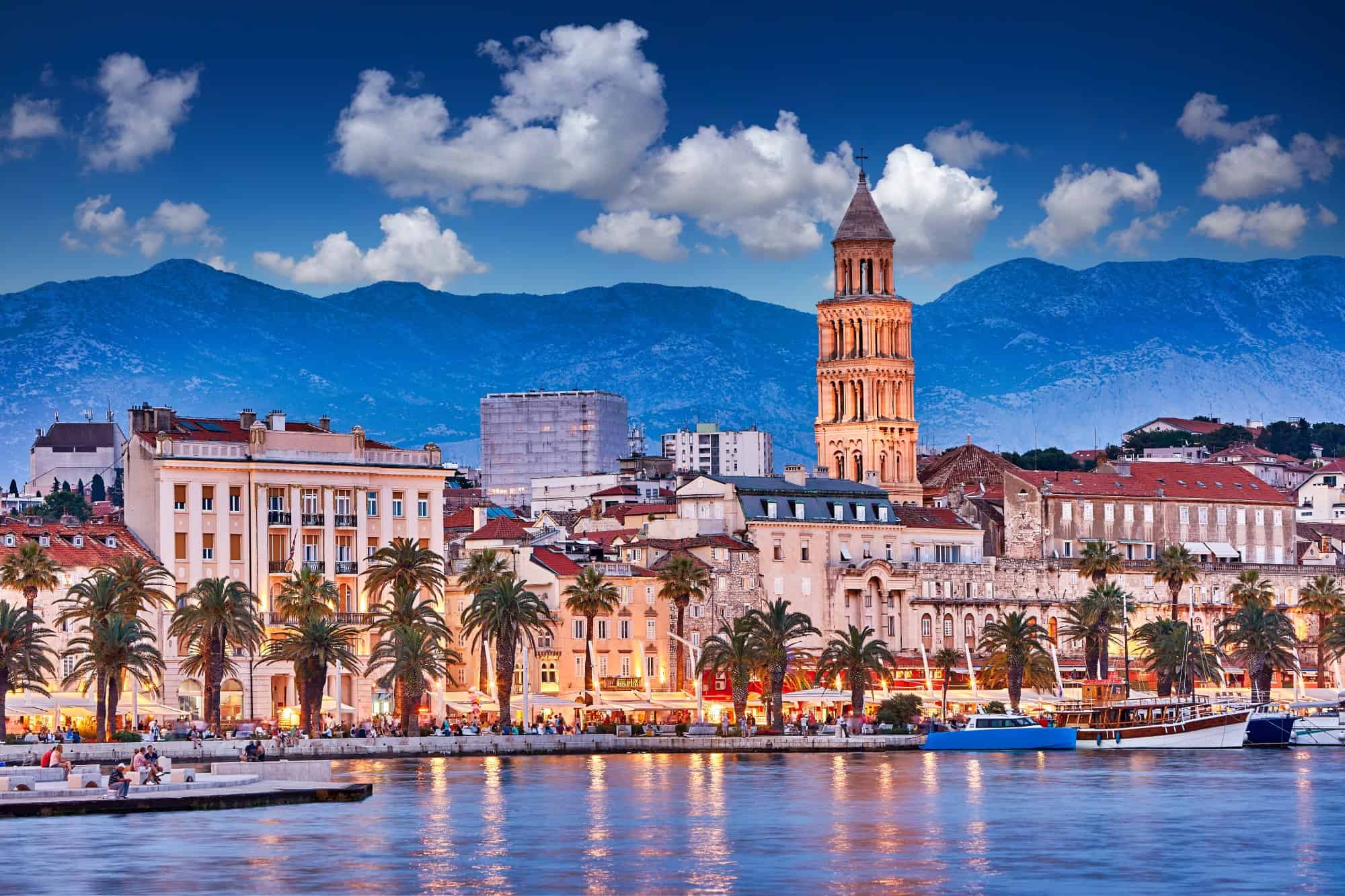
Its blend of Mediterranean and continental climates produces 250 sunny days a year. The downside is the other 115 days are wet, cold, and windy.
Summers are hot and typically dry along the Adriatic. Winters are very cold but much milder in the coastal regions.
Zagreb has hot summers and cold, windy, and snowy winters, with average temperatures of 33 F/0 C in January and 71 F/22 C in July.
Split has a humid subtropical climate, and temperatures average in January at around 46 F/8 C and July at around 78 F/26 C.
Where to live in Croatia
One of Croatia’s best features is its diverse selection of cities.
Mainland Croatia
Zagreb, the capital, and the eastern city of Osijek are large modern urban and economic hubs that account for the majority of Croatia’s non-tourism-related industry.
Adriatic Croatia
Split, the second-largest city and largest coastal city, is a focal point for tourism and an intraregional transportation hub. The cities of Dubrovnik, Pula, and Zadar are hotbeds of tourism, culture, and history.
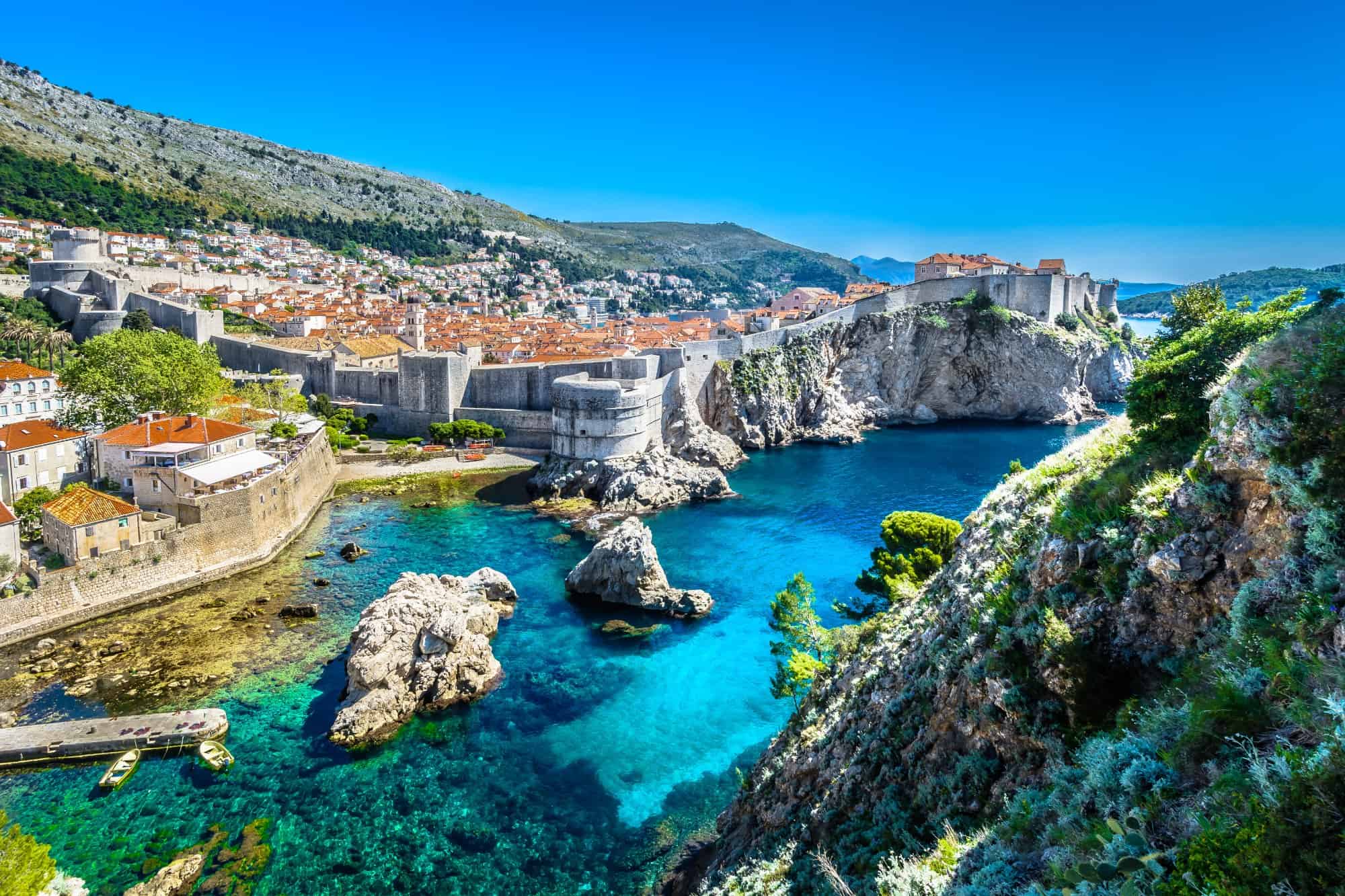
The islands and islets are unparalleled in the Adriatic, and while primarily focused on tourism, many have residential towns. Hvar is a magnet for the wealthy superyacht community. The entire island of Lošinj is considered a health and wellness retreat.
You can find a detailed guide to various locations in our Best Places To Live In Croatia guide.
Croatia’s pros and cons
Though Croatia has a lot to offer, all places have two faces.
The pros of living in Croatia
1. Communication is not a problem
Most Croatians are bi-lingual, and many are multilingual. English, German, and Italian are the most widely available secondary languages. Serbian, Czech, Bosnian, Hungarian, Slovak, and Romani are also common.
2. You can drink the water
You can actually drink tap water in Croatia. In fact, UNESCO places Croatia as one of the top 5 European countries for high-quality potable tap water.
The cons of living in Croatia
1. Croatian bureaucracy is a nightmare
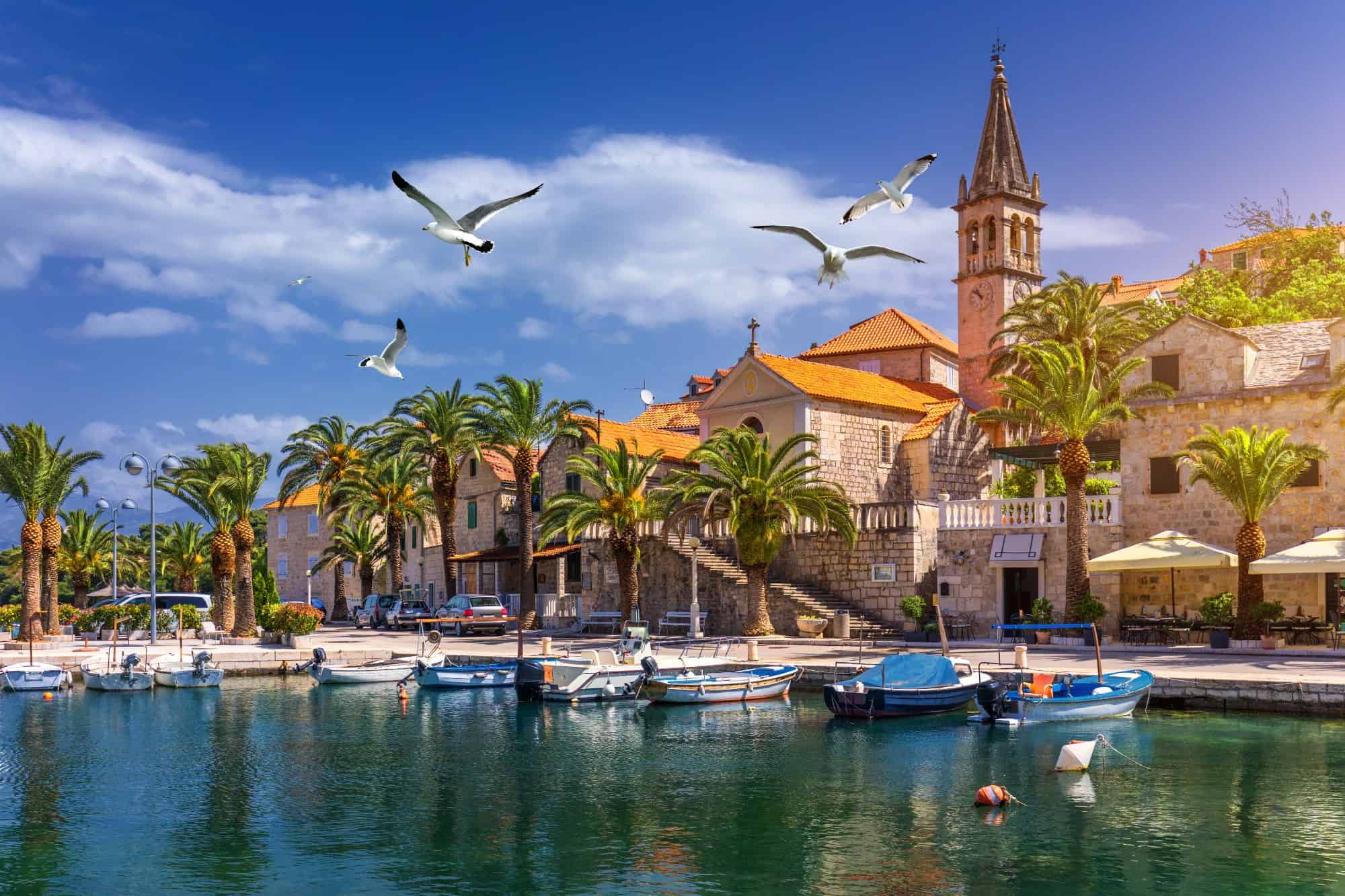
Getting the simplest things done is nothing short of a project. While this can differ from city to city, in general, plan for headaches and for the system to operate very slowly.
2. Very restrictive visa schemes
Croatia’s visa scheme is limited and overly restrictive. It genuinely fails to address the country’s need for expats, as many Croatians emigrate to other EU states.
3. Smoking can be invasive
Easily Croatia’s biggest negative. Many bars, cafes, and restaurants, especially in Zagreb, permit smoking inside even though EU law prohibits it.
4. Accessibility is limited
Accessibility is a problem in Croatia, including in apartment buildings. Public transportation and new constructions are fairly accessible, and several beaches are fully accessible as well.
The government has been working towards national improvements, but the Adriatic cities that focus on tourism are currently the most accessible.
5. It's in the Schengen Zone
On 8 December 2022, the Ministers of the 27 European Union states approved the admission of Croatia to the Schengen Zone beginning 1 January 2023. The Schengen Zone will now include 23 of the 27 EU members.
Thus, as most of Croatia’s long-term visa options require leaving the country, it means leaving the Schengen Zone altogether.
Now, the only opportunities for non-EU expats to wait out the 90-day return window and then return to Croatia without leaving the EU are Romania, Bulgaria, Ireland, and Cyprus - as they are the four remaining EU countries that are not in the Schengen zone yet.
Final thoughts on living in Croatia
Many of the things that expats and digital nomads look for in a destination are what Croatia is all about.
It can be described as some of the best Europe has to offer, as well as a genuine European experience on a budget.
Even though the initial phases of living in Croatia are a bit more challenging than in most other places, the end result makes it all worthwhile.
You might find useful:
- The Best Places To Live In Croatia
- EU Golden Visa Guide - If you're an investor looking for full EU residence, see our latest guide.
- Didn’t find what you were looking for or need further advice? Comment with your question below and we will do our best to help.
Helpful external links:
- Information for British citizens moving to or living in Croatia - gov.uk.
- Croatia travel information for U.S. citizens - travel.state.gov.
- e-Citizens, a central point for all public sector information and services in Croatia.
- Croatian health insurance fund
Secure Peace of Mind with Best-Value International Health Coverage
International Citizens Insurance provide free, no-obligation quotes from the leading international health insurance providers with plans tailored to meet your needs. Trusted by thousands of expats worldwide.




